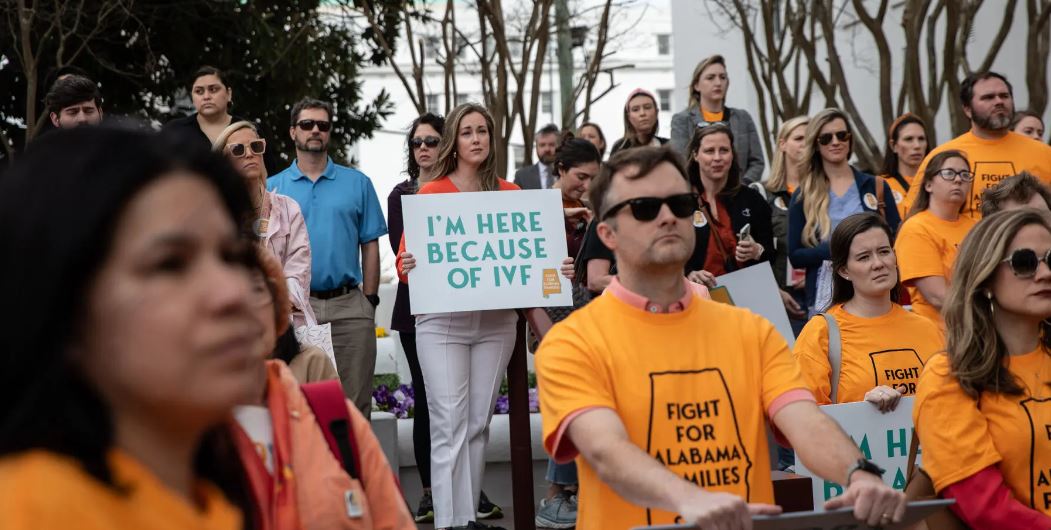A month after the Alabama Supreme Court ruled in February that frozen embryos should be legally considered children, Andrew T. Walker, an ethicist at a Southern Baptist seminary in Kentucky, contacted a friend with a plan to extend Alabama’s argument beyond its borders.
The ruling, which threatened access to in vitro fertilization (IVF) and other reproductive services in Alabama, surprised many Americans, including conservatives. The notion that fertility treatments could be morally and legally questionable unsettled many anti-abortion voters who had used such procedures to expand their families.
Dr. Walker’s efforts came to fruition four months later. On Wednesday, the Southern Baptist Convention (SBC), the nation’s largest Protestant denomination, voted to condemn the use of reproductive technologies like IVF that result in the destruction of frozen embryos. The resolution passed overwhelmingly at their annual meeting in Indianapolis.
This decision was particularly notable as Republican leaders had previously reassured their base of their support for IVF, a widely used and popular procedure among Christians and non-Christians alike. However, the vote highlighted the influence of broad theological and moral arguments regarding human life and reproduction. It indicated that many anti-abortion Christians within the SBC’s over 45,000 churches might support more extensive restrictions on IVF.
Dr. Walker, 39, had publicly opposed IVF five years earlier in an article for the Gospel Coalition, an evangelical organization. His mentor, R. Albert Mohler Jr., president of the Southern Baptist Theological Seminary, has been writing about the ethics of reproductive technologies for decades. Despite initial backlash from Christians after his article, the issue soon faded from public debate until the Alabama ruling brought it back to the forefront.
Following the ruling, Alabama’s Republican legislators acted quickly to preserve access to IVF. However, among anti-abortion activists and ethicists, the court decision underscored a moral dilemma: if life begins at conception, then producing excess fertilized eggs that may be destroyed or frozen indefinitely is morally comparable to abortion.
As the SBC prepared for its annual meeting, it solicited suggestions on cultural, political, and theological issues. Dr. Walker saw this as a decisive moment for Christian ethics to assert its convictions. The resulting 615-word resolution called on Southern Baptists to reaffirm the value of every human being, including embryos, and to use reproductive technologies consistent with this affirmation. Essentially, it urged Baptists to avoid conventional IVF practices and advocate for government restrictions on such procedures.
Almost 11,000 delegates, or “messengers,” attended the meeting. Before the vote, several messengers shared emotional testimonies, including a man whose wife was pregnant via IVF. Zach Sahadak, affirming “the sanctity of embryos,” urged for a softer stance on the resolution, arguing that the technology was not inherently wicked.
The resolution, drafted by Dr. Walker and Dr. Mohler, was considered alongside other proposed resolutions. Ultimately, the SBC selected ten for the messengers to consider, including support for Israel and opposition to establishing Christianity as a state religion.
Dr. Walker acknowledged that Christian ethicists and anti-abortion activists might be ahead of the general population on these complex issues. However, he emphasized his role in initiating and advancing these discussions, even when uncomfortable or politically challenging.
According to a Pew Research Center survey, over 60 percent of white evangelicals view IVF positively, while only 9 percent see it negatively. Another Pew survey showed that 44 percent of white evangelicals have used or know someone who has used fertility treatments, similar to the general population.
The resolution is set to intensify Republican tensions over abortion. Former President Donald Trump, distancing himself from the anti-abortion movement, recently expressed strong support for IVF. Meanwhile, Senator Katie Britt of Alabama defended a bill to protect IVF access, describing it as fundamentally pro-family.
In Indianapolis, Southern Baptist leaders admitted that many Christians had not previously linked fertility treatments with abortion. Jason Thacker, an adviser on the resolution, anticipated it would spark widespread discussions within Baptist churches, leading many to reconsider the ethical implications of reproductive technologies.

